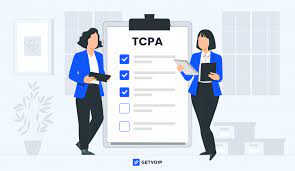Introduction
The Telephone Consumer Protection Act (TCPA) has played a pivotal role in regulating telemarketing calls and protecting consumers from unwanted communication. However, not all calls fall under the purview of the TCPA, as certain categories are exempted. This article explores the exemptions within the TCPA, shedding light on the types of calls that are not subject to its regulations, the rationale behind these exemptions, and the implications for businesses and consumers.
The Foundation of the TCPA
Legislative Background
Addressing Telemarketing Abuses
Enacted in 1991, the TCPA aimed to curb telemarketing abuses, including the use of automated dialing systems, unsolicited faxes, and pre-recorded voice messages.
Consumer Privacy Protection
The TCPA was a response to the growing concerns about consumer privacy and the need to establish guidelines for lawful telemarketing practices.
Regulatory Framework
Consent Requirements
The TCPA mandates that telemarketers must obtain prior express written consent from consumers before making certain calls, ensuring that individuals have control over the communications they receive.
Do Not Call Registry
The establishment of the National Do Not Call Registry provides consumers with the option to opt out of unsolicited telemarketing calls.
Understanding TCPA Exemptions
Types of Calls Exempted
Emergency Calls
Calls made for emergency purposes, such as notifying consumers about potential dangers or providing vital information during natural disasters, are exempt from TCPA restrictions.
Non-Commercial Calls
Calls made for non-commercial purposes, including political and survey calls, fall outside the scope of the TCPA, recognizing the importance of free speech and public discourse.
Rationale Behind Exemptions
Balancing Consumer Protection and Free Speech
TCPA exemptions strike a balance between protecting consumers from unwanted commercial solicitations and upholding the principles of free speech, particularly in the context of political and non-commercial communication.
Emergency Communication Necessities
Exempting emergency calls acknowledges the critical nature of these communications, ensuring that individuals receive timely information that can impact their safety and well-being.
Implications for Businesses
Compliance Challenges
Navigating Consent Requirements
While many commercial calls require prior express written consent, exempted calls such as political or informational messages may not, creating a nuanced landscape for businesses to navigate.
Clarifying Purpose and Content
Businesses must clearly articulate the purpose of their calls to determine whether they fall within the exemptions, avoiding potential violations of TCPA regulations.
Best Practices for TCPA Compliance
Consent Management Systems
Implementing robust consent management systems helps businesses track and document the consent obtained, ensuring compliance with TCPA regulations.
Clear Communication
Clearly communicating the purpose of calls and respecting opt-out requests are essential components of TCPA compliance, even for calls that may be exempted.
Legal Considerations
Litigation Trends
Class Action Lawsuits
TCPA violations, including failure to obtain proper consent or making unsolicited calls, can lead to class-action lawsuits, emphasizing the importance of compliance for businesses.
Regulatory Enforcement
The Federal Communications Commission (FCC) and individual states actively enforce TCPA regulations, imposing fines and penalties on entities found in violation.
Evolving Legal Landscape
Judicial Interpretations
Ongoing judicial interpretations of TCPA provisions contribute to the evolving legal landscape, shaping the boundaries of exemptions and compliance requirements.
Potential Legislative Changes
Legislative proposals may seek to refine and update TCPA regulations to address emerging challenges and technological advancements in communication.
Consumer Perspectives
Empowering Consumer Choice
Do Not Call Registry
The TCPA, along with the National Do Not Call Registry, empowers consumers to exercise control over the calls they receive, reducing unwanted solicitations.
Privacy Expectations
Consumers increasingly expect businesses to respect their privacy preferences, creating a demand for transparent communication and adherence to TCPA regulations.
Future Developments and Technological Impact
Advancements in Communication Technology
Impact of Robocalls and AI
As technology evolves, the impact of robocalls and artificial intelligence on TCPA compliance is a growing concern, necessitating ongoing regulatory adaptation.
Technological Solutions
The integration of technological solutions, such as the STIR/SHAKEN framework, aims to enhance call authentication and reduce fraudulent calls, influencing the future landscape of TCPA compliance.
Conclusion
The TCPA, with its exemptions, reflects a delicate balance between protecting consumer privacy and upholding free speech rights. As businesses navigate the regulatory landscape, understanding the nuances of TCPA exemptions is essential for compliance. Striking the right balance between effective communication and respecting consumer preferences ensures that businesses can engage with individuals lawfully while avoiding potential legal pitfalls. As the legal and technological landscapes continue to evolve, staying informed about TCPA regulations and remaining adaptable to changes will be crucial for businesses seeking to communicate effectively and responsibly in the ever-changing realm of telemarketing.
